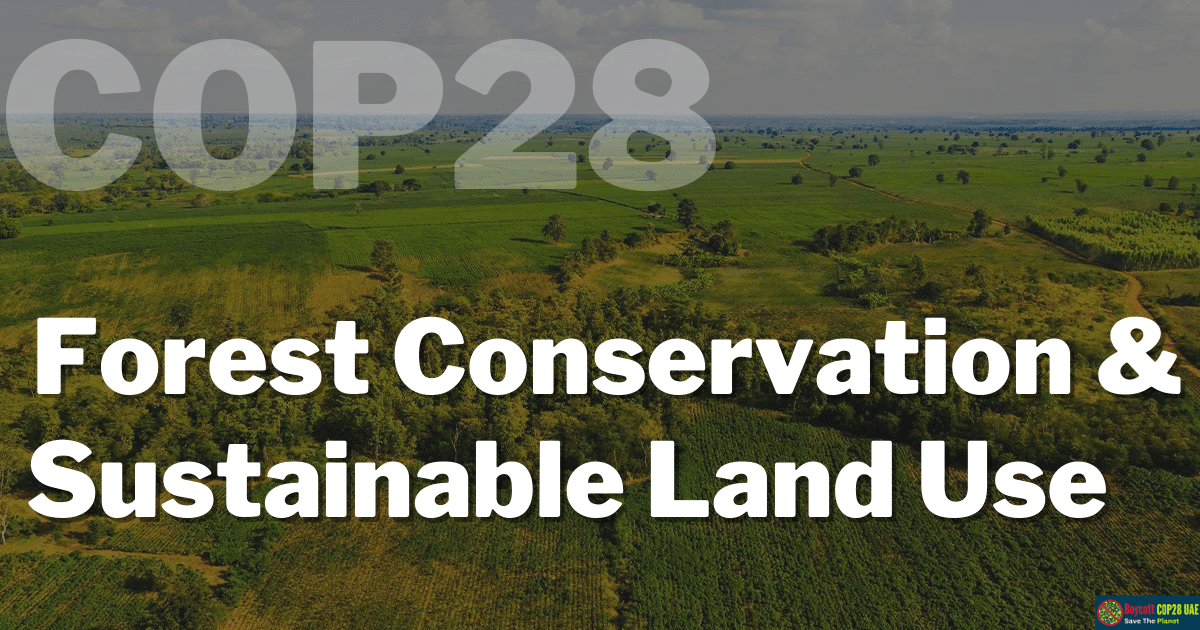In the year 2023, nations around the world will gather for the 28th Conference of the Parties (COP28) to address the pressing issue of climate change mitigation. This important event will play a significant role in shaping the global response to the challenges posed by climate change. To adapt to climate change and reduce its impact, countries will come together under the guidance of the United Nations to devise effective mitigation strategies.
Focus Areas For COP28
One of the key areas of focus for COP28 will be the reduction of CO2 emissions. As worldwide emissions continue to rise, nations must take decisive action to curb the use of fossil fuels and switch towards renewable energy sources. The private sector will serve a vital role in this transition as businesses increasingly recognise the importance of sustainable practices and invest in clean technologies.
Mitigation efforts will also extend beyond the energy sector. Governments will explore various strategies to mitigate climate change, including enhancing energy efficiency, promoting sustainable transportation, and implementing measures to reduce deforestation. Forests and trees, in particular, will be recognized for their crucial role in sequestering carbon and preserving biodiversity.
Urgent Need For Climate Change Mitigation
The Intergovernmental Panel on Climate Change (IPCC) has consistently highlighted the urgent requirement for climate change mitigation and adaptation. The effects of climate change are already being felt worldwide, and vulnerable communities are particularly at danger. COP28 will prioritize the development of mitigation strategies for climate change that address the needs of these vulnerable populations and promote climate resilience.
COP28 will emphasize the significance of long-term planning, with nations striving to establish inclusive and ambitious goals for reducing emissions. The primary objective will be to cap global warming below 2 degrees Celsius, while aspiring to achieve the even more ambitious target of 1.5 degrees Celsius. Accomplishing these aims will demand international collaboration, groundbreaking technologies, and unwavering dedication from all involved parties.
Addressing climate change is not a task that can be solely achieved by governments. Collaboration between governments and civil society plays a crucial role in this endeavor. The upcoming COP28 aims to create a platform where these diverse actors can come together, share knowledge and best practices, and establish partnerships to accelerate climate action.
Importantly, mitigating climate change should be accompanied by efforts in climate change adaptation. COP28 will emphasize the need for integrated approaches that simultaneously tackle both mitigation and adaptation, ensuring a sustainable and secure future for everyone worldwide.
The decisions and commitments made during the 28th session of the conference will have a lasting impact on global climate change mitigation efforts. With growing awareness and the availability of viable strategies, there is optimism that this conference will serve as a turning point in our collective fight against climate change.
Why The Selection of UAE to Host COP28 is Controversial
- The UAE is one of the world’s largest emitters of carbon dioxide per capita. In 2020, the UAE emitted 22.2 metric tons of carbon dioxide per capita, more than twice the global average of 10.6 metric tons
- The UAE’s energy sector is heavily reliant on fossil fuels. In 2020, fossil fuels accounted for 93% of the UAE’s energy consumption
- The UAE has made little progress in reducing its greenhouse gas emissions. Between 2010 and 2020, the UAE’s emissions increased by 7%
These facts suggest that the UAE is not a good choice to host COP28, a major international climate change conference. The UAE’s high emissions, reliance on fossil fuels and lack of progress on climate change mitigation make it a poor candidate to host this important event.
In addition to the facts above, there are other reasons why the selection of the UAE to host COP28 is controversial. For example, the UAE is a wealthy country with a high per capita income. This means that the UAE has the resources to invest in climate change mitigation, but it has not done so to date.
Additionally, the UAE is a monarchy, meaning its government is not democratically accountable. This raises concerns about whether the UAE can deliver on its promises to address climate change.
Final Words
In conclusion, COP28 represents a pivotal moment for worldwide climate change mitigation. The conference will bring nations together to elaborate and implement effective strategies to reduce emissions, transition to renewable energy, and promote climate resilience. By harnessing the power of international collaboration and innovation, this conference has the potential to accelerate the global response to climate change and pave the way for a more sustainable future.






